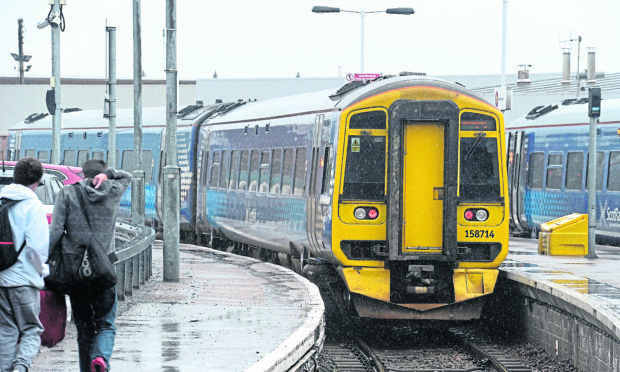Rail users could be put off travelling by train when fare prices significantly jump next year, Scottish Labour has warned.
ScotRail’s regulated peak fares will rise by 3.2% in January, while its regulated off-peak fares will increase by 2.2%.
Season ticket holders in the north-east will be affected in varying degree by the fare change.
The cost of travelling from Aberdeen to Dundee on an annual pass will rise by £141, to cost passengers £4,569.
And travelling for 12 months between Huntly and Aberdeen will cost £3,195 after a £99 increase.
Further north, the price of an annual pass between Elgin to Inverness will go up by £92 to £2,996 while the Nairn to Inverness pass will cost £1,457 after a £45 increase.
Scottish Labour’s Rural Economy and Connectivity spokesman Colin Smyth, said the fare rises will “cripple” commuters.
He said: “This rail fare rise is unwanted, unwelcome and unnecessary.
“It is simply wrong for commuters to have to pay more for train services which are plagued by delays, cancellations and stop-skipping.
“Thousands of working people may now be priced out from travelling on Scotland’s railways.”
Even small journeys in the north-east will be affected, with a £20 increase on the cost of an annual pass between Dyce and Aberdeen and the price of an annual Elgin to Forres fare going up by £37 to £1,213.
The Scottish Government said almost 97 million passenger journeys were made in 2017 and £8 billion had been invested over the past decade to enhance the network.
Transport Secretary Michael Matheson said: “The Scottish Government recognises that fares increases are unwelcome.
“That is why we have taken action to minimise these.
“Regulated ScotRail peak fares increases are capped at the level of the Retail Price Index and regulated off-peak fares at one per cent lower than inflation.
“This means, in Scotland, average fares increases are lower than England and Wales where the UK Government applies an increase equivalent to RPI to all regulated fares.
“ScotRail’s Price Promise Scheme also ensures passengers have access to information on best value fares and refunds are issued where a cheaper alternative can be found.
“While passengers make a contribution towards the cost of running the railway through rail fares, in Scotland the majority of rail service costs are met by government subsidy.”
Scottish Greens transport spokesman John Finnie MSP said: “While it’s welcome that the increase in Scotland won’t be as eye-watering as in England, rail users still deserve better value for money.”
